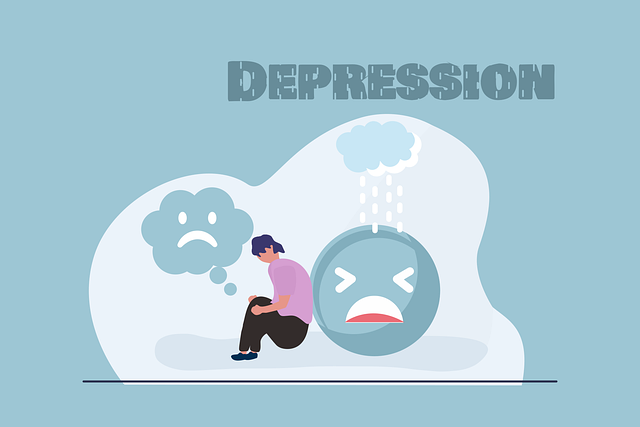Wheat Ridge Cognitive Behavioral Therapy (WR-CBT) offers comprehensive risk management planning by holistically assessing clients' internal and external factors, including past traumas, emotional intelligence, and confidence levels. They integrate techniques like emotional intelligence development and confidence boosting to equip clients with tools for navigating life's challenges, providing proactive Anxiety Relief, and fostering a supportive environment for healing and thriving. WR-CBT prioritizes patient safety through evidence-based practices, regular staff training, and data-driven monitoring systems, ensuring high-quality care in a secure environment.
“In the realm of mental health care, effective risk management is paramount to ensuring patient safety and fostering a healing environment. This article guides Wheat Ridge Cognitive Behavioral Therapy professionals through a crucial process—navigating risks in their practice. We’ll explore strategies for identifying potential hazards, developing robust plans, and implementing safe care practices. By delving into these essential topics, we aim to empower therapists with the tools needed to mitigate risks, enhance patient outcomes, and create a secure therapeutic space.”
- Understanding Risk in Mental Health Practice
- Developing a Comprehensive Risk Management Plan
- Implementing and Monitoring Strategies for Safe Care
Understanding Risk in Mental Health Practice

In the field of mental health care, understanding risk is paramount for practitioners to deliver effective services. Risk management planning isn’t merely about anticipating potential threats; it involves a nuanced comprehension of the complexities within each client’s journey. At Wheat Ridge Cognitive Behavioral Therapy, therapists are trained to recognize and assess subtle signs of distress or exacerbating factors that could impact a patient’s mental well-being. This includes not just external stressors but also internal vulnerabilities like past traumas, emotional intelligence, and confidence levels, all of which play significant roles in an individual’s overall mental health landscape.
By integrating concepts such as emotional intelligence and confidence boosting techniques into therapy sessions, Wheat Ridge Cognitive Behavioral Therapy offers a holistic approach to risk management. This strategy not only aids in Anxiety Relief but also equips clients with tools to navigate life’s challenges more effectively. Such proactive measures ensure that therapists are prepared to address risks proactively, fostering a supportive environment where clients can heal and thrive.
Developing a Comprehensive Risk Management Plan

Developing a Comprehensive Risk Management Plan is an essential step for mental health professionals, especially those practicing Wheat Ridge Cognitive Behavioral Therapy. It involves a strategic approach to anticipate and mitigate potential risks that can arise in the therapeutic process. This plan should be tailored to each client’s unique needs and circumstances, ensuring a safe and supportive environment. By integrating elements of Mental Health Policy Analysis and Advocacy, therapists can stay updated with industry standards and best practices, fostering a culture of continuous improvement.
A robust risk management strategy includes implementing Trauma Support Services and promoting Self-Care Routine Development for Better Mental Health. Therapists should be adept at recognizing early signs of client distress or potential triggers and have protocols in place to address these effectively. Regularly reviewing and updating the plan is crucial, allowing practitioners to adapt to evolving circumstances and best serve their clients’ mental health needs.
Implementing and Monitoring Strategies for Safe Care

Implementing and monitoring strategies for safe care is a cornerstone of effective risk management planning for mental health professionals. At Wheat Ridge Cognitive Behavioral Therapy, we prioritize patient safety by integrating evidence-based practices that enhance emotional intelligence and inner strength development. Regular staff training and ongoing supervision ensure all therapists are equipped to handle complex cases while maintaining ethical standards.
Through robust monitoring systems, we track treatment outcomes and identify areas for improvement. This data-driven approach allows us to refine our strategies, ensuring that our programs, including Mental Wellness Coaching, remain dynamic and responsive to the evolving needs of both clients and practitioners. By fostering a culture of continuous learning and adaptive management, we strive to provide the highest quality care in a secure and supportive environment.
Mental health professionals, like those offering Wheat Ridge Cognitive Behavioral Therapy, operate in an environment where understanding and managing risks are paramount. By developing a comprehensive risk management plan, practitioners can create safe, effective care environments. This involves identifying potential hazards, implementing tailored strategies, and continually monitoring for improvements or emerging issues. Adhering to these practices ensures patient safety and fosters trust, ultimately enhancing the quality of mental health services provided.














